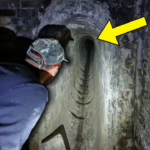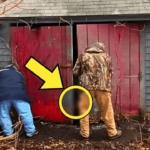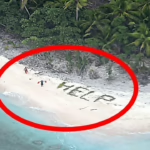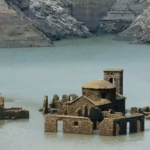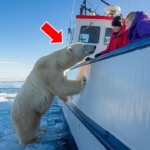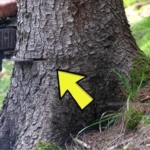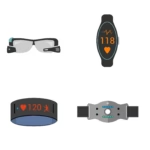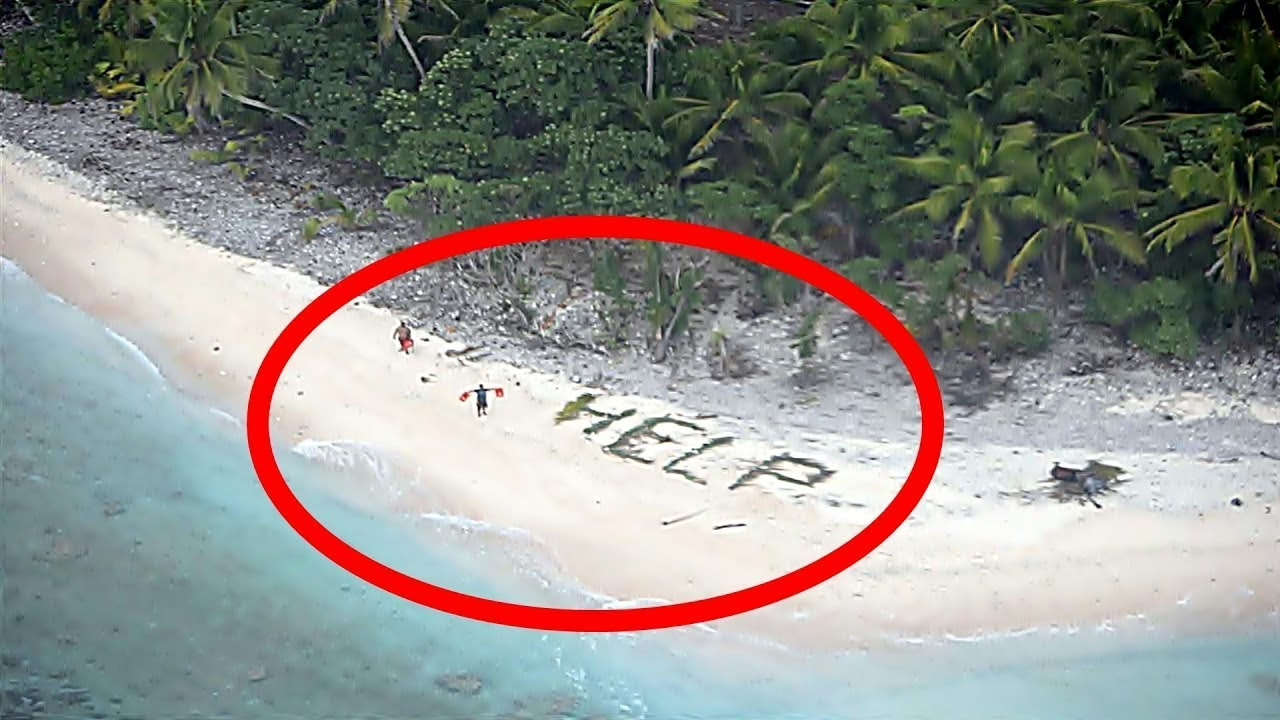Lieutenant Riley Beers had been through plenty of high-pressure moments in his ten years with the U.S. Coast Guard. He had flown search-and-rescue missions in pounding rain, winched stranded sailors from swells that rose like skyscrapers, and navigated tight calls where one mistake could cost lives. But this day was supposed to be different. Just a routine patrol over the Pacific Ocean, nothing more.
The flight path passed near Pelot Island, a quiet, untouched coral island about 160 miles northeast of Yap. It was the kind of place that rarely—if ever—saw visitors. No hotels, no huts, no footprints in the sand. Just white beaches, thick tropical forest, and the sound of waves breaking endlessly against the shore. Riley had flown past it before, never giving it a second thought.
As he nudged the controls, the helicopter drifted smoothly over the shoreline. The afternoon sun glittered on the turquoise water, light bouncing off the coral shallows. Riley’s eyes scanned automatically, a habit drilled into him after years of search duty. Usually he spotted only birds, foam, or the faint ripple of a reef.
But then something shifted.
At first it was barely noticeable, a flicker near the edge of the forest. He almost ignored it, thinking it was a seabird or sunlight bouncing off the leaves. But as the helicopter angled lower, Riley’s stomach tightened. His eyes locked on a message etched into the sand.
Three huge letters.
SOS.
“Look at that,” Riley shouted, pointing quickly to his co-pilot, Lieutenant Justin Doyle. “That’s an SOS. Someone’s down there.”
Justin leaned forward, eyes widening. “That’s not just a mark in the sand. Someone’s seriously in trouble.”
Riley eased the helicopter into a turn, circling back. “Radio it in. Let’s get a rescue team moving. But I want to see exactly what we’re dealing with first.”
Justin grabbed the radio, calling base. Riley kept his eyes fixed on the island, scanning for more signs. And then the movement from earlier came into focus.
Figures. Human figures.
Three of them, standing on the beach.
Stranded Souls
As the chopper dipped lower, Riley’s chest tightened. On the beach stood three people—two men and a woman—waving with everything they had. Even from the air, their thin frames looked weak and unsteady. Their arms cut desperate arcs in the air, their movements panicked, urgent.
Nearby, a small boat was pulled up onto the sand, half-buried and battered. It looked like it hadn’t moved in weeks.
“God, no,” Riley breathed. “They look like they’ve been stuck here forever.”
The Coast Guard chopper hovered as Riley and Justin studied the scene. The castaways’ clothes were torn, ragged, sun-bleached from weeks of exposure. Their skin was blistered, their faces hollowed. Every wave of their hands carried the weight of near collapse.
Behind them, barely visible among the trees, was a hut. A crude, patchwork shelter made from branches, palm fronds, and bits of scavenged debris. A place no one would choose to live unless it was their only hope.
“This wasn’t a place anyone could survive for long,” Riley muttered. “We’ve got to get them off this island now.”
But then, he saw it.
The horizon.
What had been blue and calm just minutes earlier was now turning into a wall of gray. Thick clouds were rolling in fast from the southwest, heavy and violent, racing across the sky like an army on the march. The first gusts of sharp wind rattled the chopper.
Justin’s eyes flicked to the radar. “We’ve got trouble, Riley. Storm’s coming in quicker than forecast. We’ve got maybe thirty minutes. And it’s not looking mild.”
Riley’s hands tightened on the controls. His heart raced. He could see salvation in reach—but he also saw danger rushing in to snatch it away.
The Impossible Choice
The castaways needed immediate help. That much was clear. But flying into a Pacific storm for a rescue was a gamble that could kill everyone—the survivors and the crew alike.
The wind was already rough enough to make lowering a winch almost impossible. A single gust could slam a survivor into the side of the chopper. The sea below was rising, waves churning into white teeth, ruling out a water landing. Calling in backup? No chance. Other helicopters couldn’t launch in the face of that storm.
They were running out of options. Fast.
“Drop a radio and emergency supplies,” Riley ordered sharply. “We need to keep them stable until we can get back here.”
The crew scrambled, pulling together a package: food rations, bottled water, a medical kit, and a two-way radio. Everything wrapped tight to survive the drop.
Riley circled back and held the chopper steady above a patch of sand. The bundle fell, landing a short distance from the survivors. They rushed to it instantly, ripping it open with trembling hands.
Riley keyed the radio. “Can you hear us?”
A pause. Then, through static, a voice cracked back. Weak, shaky, but alive.
“We hear you. Thank you. Please help us.”
“This is the U.S. Coast Guard,” Riley said, forcing calm into his voice though his chest felt heavy. “We’re here to help. But there’s a big storm moving in. We have to return to base for now. We dropped supplies—food, water, and a medical kit. That should help until we can get back.”
Silence. Then the voice again, raw and pleading.
“No… don’t leave us. Please. We’ve been out here thirty-three days. Eating whatever we could find. Rats… shells. We’ve been drinking rainwater. But Rita—she’s not doing well. Her blood sugar’s really low. Please, we need help.”
Riley swallowed hard. Guilt pressed like a weight on his chest. “I’m sorry. We don’t have a choice. The storm’s too close. It’s not safe to try a rescue right now. But I promise—we’ll come back.”
The first drops of rain hit the windshield. Wind surged, jolting the aircraft.
Justin’s voice was urgent. “We’ve got to move, Riley. Visibility’s about to drop. If we don’t leave now, we won’t make it out.”
Riley looked down one last time. The castaways clutched the supply bundle like it was the only thing tethering them to life. Dark clouds swallowed the sky behind them.
Then he pulled the helicopter away.
It felt like leaving someone behind in a burning building.
The Longest Night
Three hours later, the helicopter touched down at Anderson Air Force Base in Guam. Rain hammered the tarmac. The storm had arrived in full.
Riley stepped out of the cockpit, the cold wind biting his face. He knew he wouldn’t be sleeping much tonight. Somewhere out on that lonely strip of sand, three people were bracing against the storm with nothing but scraps and hope.
In the debrief, Riley told the team everything—what they’d seen, what the survivors said, their condition. Justin shook his head. “I don’t know how they’re still alive. Heat alone could kill most people in a week. Thirty-three days? That’s unthinkable.”
Plans were drawn up immediately. Helicopters would monitor through the night, dropping more supplies if weather allowed. At first light, a full rescue team would move.
That night, Riley lay in his bunk, staring at the ceiling. The storm roared outside, rattling the hangar doors. His mind replayed the scene endlessly—three skeletal figures, frantic hands in the air, pleading voices over the radio.
What had each day been like for them? He pictured it.
The blazing sun, baking their skin raw. The endless hunger gnawing inside, turning every thought into obsession. The terror of each night, when darkness swallowed the island whole. The dread of storms, when every drop of rain could be life—or death.
The survivors had endured it all. And still, somehow, they had held on.
Dawn Rescue
By morning, the storm eased. The skies cleared just enough to risk a mission. Riley and his team were back in the air, the helicopter buffeted by leftover gusts.
As Pelot Island came into view, his stomach clenched.
On the beach, the castaways stood waiting. In the daylight, their condition looked even worse. Pale skin. Sunken eyes. Clothes little more than rags.
The woman stumbled forward, barely able to stand.
“Get that winch down,” Riley ordered.
The crew lowered the harness. The first man climbed in, hands trembling, body shaking so badly he almost missed the straps. When he was pulled into the cabin, he collapsed, breath ragged. Relief washed his face.
Next was the woman. Riley’s chest ached as she struggled with the harness. Her coordination faltered, her body so weak it seemed weightless. The crew guided her carefully, pulling her inside like lifting glass. Medics rushed to her side instantly, checking vitals, giving glucose.
The last man clung to the line as the wind rocked him dangerously. The winch swayed, every second a risk. But finally he was pulled in, collapsing onto the floor, dazed but smiling weakly.
“Thank you,” he whispered.
Riley exhaled for what felt like the first time in hours.
Survival Story
As the chopper turned toward the coast, medics worked frantically. The woman was in the worst shape—her pulse faint, breathing shallow. Glucose was administered. Her color began to return, ever so slightly.
The two men sipped water slowly, speaking in broken sentences. One explained what had happened.
They had set off from Puop, heading toward the Puloples in a 23-foot skiff. But a storm caught them, burning through their fuel as they fought to stay afloat. Drifting helplessly, they were carried far off course. Eventually, they washed ashore on Pelot Island—more than 120 miles from where they began.
For thirty-three days, they survived by catching fish, trapping rats, gathering shells, and drinking rainwater. They built a hut from branches. When one of them fell ill, the others kept her alive as best they could.
Every day was a fight. Every night, a test of faith.
But they never stopped hoping someone would come. And when the helicopter finally appeared, hope turned to salvation.
Reflection
Doctors later called it a miracle. Few people could endure thirty-three days in such conditions and survive. Dehydration alone should have claimed them within a week.
But they had grit. They had each other. And above all, they had the will to keep going when everything seemed lost.
For Riley and his crew, the mission would never be forgotten. The image of three figures waving from an island no one ever visited would stay with them forever.
Sometimes, even the smallest sign—a scratched SOS in the sand—can carry the weight of life itself.

